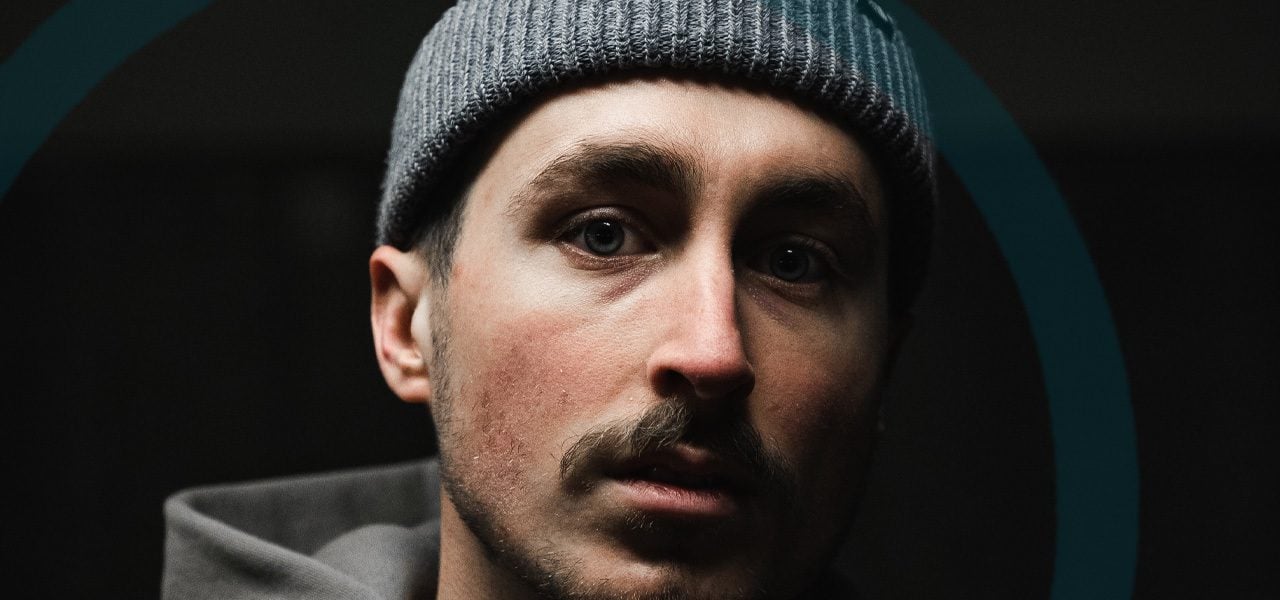You have heard the acronyms before, but what are CBT and DBT and how can they help those struggling with addiction to find long-lasting recovery?
Treating an addiction to alcohol or drugs not only requires long-term behaviour therapy but also relapse prevention therapy, medication management, and ample support resources for the patient.
Although drug addiction treatment programs have similar therapy modalities, alcohol addiction programs also focus on addressing specific health issues caused by alcohol abuse. Cognitive Behavioural Therapy (CBT) and Dialectical Behavioural Therapy (DBT) can help alcoholics cope with unresolved emotional issues to achieve and maintain their sobriety.

Alcohol addiction is a complex disease that does not exist solely as alcoholism. Most people with an alcohol or drug abuse disorder are suffering from one or more mental illnesses, such as PTSD, depression, suicidal ideation, or anxiety. Alcohol use probably began as a way to self-regulate and self-medicate the symptoms of their mental illness. Therapy, therefore, is essential for resolving mental and emotional problems that caused them to become dependent on alcohol in the first place.
Therapies like CBT and DBT help people replace their maladaptive coping strategies, alcohol in this case) with evidence-based, alternative options, like using mindfulness techniques, restructuring negative thought patterns, and channeling unproductive emotions into creative accomplishments, such as journaling, painting, or musical pursuits.
Addiction therapy for substance abuse significantly improves a person’s self-awareness by motivating them to honestly acknowledge their weaknesses, strengths, and unmet personal needs. Receiving CBT or DBT in a treatment center further provides the person with a safe, therapeutic place in which to explore traumatic memories in ways that previously frightened them.
Therapists are experts at gently guiding a patient through the painful process of recognizing and accepting their addiction as a chronic disease that requires their full attention at all times.
Learning to Restructure Thinking Patterns
CBT and DBT therapists teach people in addiction treatment to identify and challenge how they perceive past and present events occurring in their lives. Cognitive restructuring is based on the concept that it is not the event itself that produces anxiety or depression but the way we interpret the event. To engage patients in cognitive restructuring, therapists demonstrate how to view negative beliefs in a different way by showing them the irrationality of maintaining such perceptions.
Defeating alcoholism or drug addiction is a lifetime commitment to remaining in therapy and using the skills taught by the therapist to deal with triggers and cravings. Attending scheduled therapy appointments keeps people accountable for their actions, renews the motivation to get and stay sober, and offers them the chance to receive effective feedback about problems they are having from someone they trust and respect.

Evolving from a branch of psychology called Behaviour Psychology (B.F. Skinner and J.B. Watson), CBT emerged during the 1960s through studies by Dr. Aaron Beck. While working with patients suffering from major depression, Dr. Beck discovered that their depressed mood arose largely from the illogically negative way they viewed themselves and reality. Deeming these spontaneous, negative thought patterns as “automatic thoughts,” Beck endeavored to teach patients that how they perceived themselves and the world actually had no basis in reality. Since then, hundreds of studies have proved that CBT is a highly effective treatment for mental illness and addiction.
What is Cognitive Behavioural Therapy?
Cognitive behavioural therapy (CBT) is an evidence-based therapy used to treat addiction, mental illness, behavioural disorders, and personality disorders. Incorporating principles of cognitive restructuring and behavioural modifications, CBT is based on the following precepts:
- Psychological problems often result from unhelpful, irrational perceptions of reality that promote learned patterns of self-destructive behaviours
- Learning to quickly identify distorted thoughts that could cause a person to act problematically. Therapists then teach their clients how to objectively re-evaluate these thoughts using CBT techniques
- Acquiring a better understanding of why others are motivated to behave the way they do
- Using cognitive restructuring, mindfulness, and stress-reducing techniques to cope with ambiguous situations
- Confronting and making sense of fears instead of repressing or avoiding fears
CBT therapy sometimes includes role-playing scenes where the therapist adopts the persona of someone the person does not want to confront. For example, if a recovering alcoholic was raised by a verbally abusive mother and never actually challenged their mother with this fact, CBT can help them develop their sense of self-esteem, self-worth, and courage to resolve the emotional damage done to them by a parent or guardian.
How does CBT work in treating addiction?
Substance abuse treatment with CBT involves restructuring the belief system of addicts who frequently deny the consequences of alcoholism or drug abuse. Many addicts hold the perspective that using drugs or alcohol helps them deal with their problems. A common belief of alcoholics is that, unless they can drink, they will end up in an institution or think about suicide all the time.
CBT therapists work with patients to show them that thoughts like this partially fuel their alcohol abuse. Throughout each counseling session, therapists point out every cognitive distortion the patient brings up and uses objective rationalization to prove how inaccurate the belief is.
Addicts and CBT therapists work as a team to identify the cause of negative thought patterns, how these thoughts contribute to high-risk behaviours, and what the person thinks would work to restructure their way of viewing themselves and the world. In addition, CBT is an excellent therapy to employ quickly when a recovering addict is experiencing cravings and needs immediate coping skills to prevent relapse.
Why Cognitive Behavioural Therapy Works
- It encourages the development of a therapeutic relationship between the therapist and client. This type of relationship nourishes the ability of a client to identify and modify thought patterns that contribute to their addiction.
- It offers motivational components like dual diagnosis workbooks or behaviour journals that clients are expected to maintain outside of CBT sessions.
- It is applicable to both individual and group therapy meetings.
- It provides patients with useful, practical, and doable coping strategies they can utilize in their everyday lives.
- It accommodates individualized coping techniques that work exclusively for the client and specific situations causing them stress.
What is Dialectical Behavioural Therapy?
DBT is a type of Cognitive Behavioural Therapy developed by University of Washington Professor of Psychology Dr. Marsha Linehan to help people suffering from suicidal ideation and self-harming behaviours. Dialectical behaviour therapy has since been adjusted to encompass and address other challenging and complex mental disorders such as PTSD, dual diagnosis/comorbidity (often seen in substance abusers), severe mood disorders, and eating disorders.
The word “dialectical” is a philosophical term that refers to the integration or fusion of opposites. An example of dialectical thinking would be holding two apparently contrasting ideas as essential for describing a truth, such as one person saying a glass of water is half-empty and another person saying the same glass is half-full. A DBT therapist would instead say the glass is both half full and half empty.
Core principles of DBT include:
- Learning how to take control of cognitive and emotional processes by identifying triggers that provoke overly emotional states associated with negative thought patterns and making irrational decisions
- Applying appropriate coping skills to stop unwanted thoughts and emotions and deter undesired behaviours
- Understanding that although people strive to do the best with what they have to work with, some simply lack certain life skills or have been influenced by negative and positive reinforcements that interfere with a person’s ability to achieve their goals and live a meaningful life
- Accepting reality for what it is but remaining committed to changing maladaptive behaviours
How does DBT work to treat addiction?
DBT therapy helps substance abusers move from being out of control of their addiction to being in control of addiction behaviours. DBT patients learn how to stop being emotionally shut down to fully experiencing and resolving painful emotions to rationally solving past and present issues fueling their alcoholism or drug addiction.
Learning DBT techniques such as distress tolerance allow recovering addicts to survive the most difficult situations in their lives without relapsing. Individuals with substance or behavioural addictions benefit from applying distress tolerance techniques to help them move past stressful moments that may otherwise cause them to start drinking or using drugs again.
A technique exclusive to DBT called “Improve the Moment” is a form of mindful awareness that give those struggling with addiction the mental and emotional tools they need to manage overwhelming emotions. “Improve” is an acronym for the following tenets of DBT:
- Imagery (thinking about relaxing, pleasant scenes)
- Meaning (finding purpose and meaning in strong emotions or disturbing situations)
- Prayer (praying or chanting a mantra)
- Relaxation (consciously relaxing tense muscles and breathing slowly and deeply)
- One thing in the moment (practice principles of mindfulness)
- Vacation (taking a break or “vacation” from things causing distress. Don’t fight reality; accept it)
- Encouragement (clients learn to tell themselves they are worthy and strong enough to make it through this)
Emotion Regulation
Emotion regulation is the ability to prevent the escalation of negative feelings by understanding the biological relationship among thoughts, physical sensations, emotions, and behaviors. DBT therapy clients are taught that lack of sleep, lack of eating proper foods, abusing drugs, and not getting enough exercise may exacerbate psychological issues.
Specific DBT skills promoting emotion regulation include:
- Identifying and labeling both positive and negative emotions
- Identifying obstacles and triggers that prevent modification of negative thought patterns and emotions
- Improving the ability to remain objective while reducing the intense experience of feeling too emotional
- Increasing mindfulness about emotions
- Learning to recognize and understand one’s own body language, sensations, and perceptions of events and actions
Why Dialectical Behavioural Works
- It improves a person’s ability to communicate their thoughts, feelings, and needs clearly and objectively
- It provides people in recovery with skills that go beyond their addiction and mental health issues. Mindfulness techniques are applicable to all aspects of a person’s well-being and general health.
- The effectiveness of dialectical behavioural therapy has been thoroughly researched and found to be an evidence-based therapy for addiction, mental illness, behavioural disorders, and personality disorders.
Medical Detox
Detoxification for a chemical dependency is the safest method of eliminating alcohol or drugs from the body. Deciding to manage your addiction by going “cold turkey” may lead to heart failure, severe organ failure, and seizures. Chronic alcoholics are especially susceptible to a life-threatening condition called delirium tremens that demands immediate emergency treatment
Medication Management
Specific medicines are available to reduce depression, anxiety, cravings, and withdrawal symptoms once a patient has entered a medical detoxification program. Taking medications as prescribed is essential for achieving a successful recovery.
Inpatient Treatment
Individuals with long-term or severe alcohol or drug addictions will need to enter a residential rehab treatment center that provides a structured environment and 24/7 counseling. The length of an inpatient treatment center program is typically between 30 and 90 days.
Outpatient Treatment
People in outpatient treatment are permitted to remain at home while attending intensive therapy sessions during the day. Learn more about EHN Online to find out if this type of addiction treatment is right for you or someone you know.
Hybrid
Bellwood’s Hybrid Addiction Program is a hybrid treatment program involving both residential and outpatient services. Some alcoholics or drug abusers may need to spend a short time in a residential treatment center before transferring to an outpatient program.
Addiction Counseling
EHN Canada offers different forms of counseling sessions to accommodate individuals with specific problems. Individual, group, alcoholism, depression, and anxiety counseling is available that incorporates elements of CBT, DBT, and other therapies.
Relapse Management
Relapse management techniques and resources are meant to help people in recovery deal with cravings caused by stressful situations or “triggers”. Relapse prevention is also designed to address recovering addicts who are sober but still in denial about their chronic addiction.
Family Support
Having the unconditional support of a parent, spouse, son, daughter, sibling and other loved ones is vital to recovery and a lifetime of sobriety. EHN Canada strongly encourages the inclusion of family members in a patient’s treatment and Aftercare program.
Aftercare
Aftercare services are available from EHN Canada to support recovering patients and their loved ones once the patient has been discharged from their treatment program. Help provided by aftercare services includes 24/7 crisis counseling, access to community resources, and assistance with employment and housing needs.
Please call our helpline at 416-644-6345 or fill out our admission form if you or someone you know needs help with alcohol addiction. Recovery is just a phone call away.



